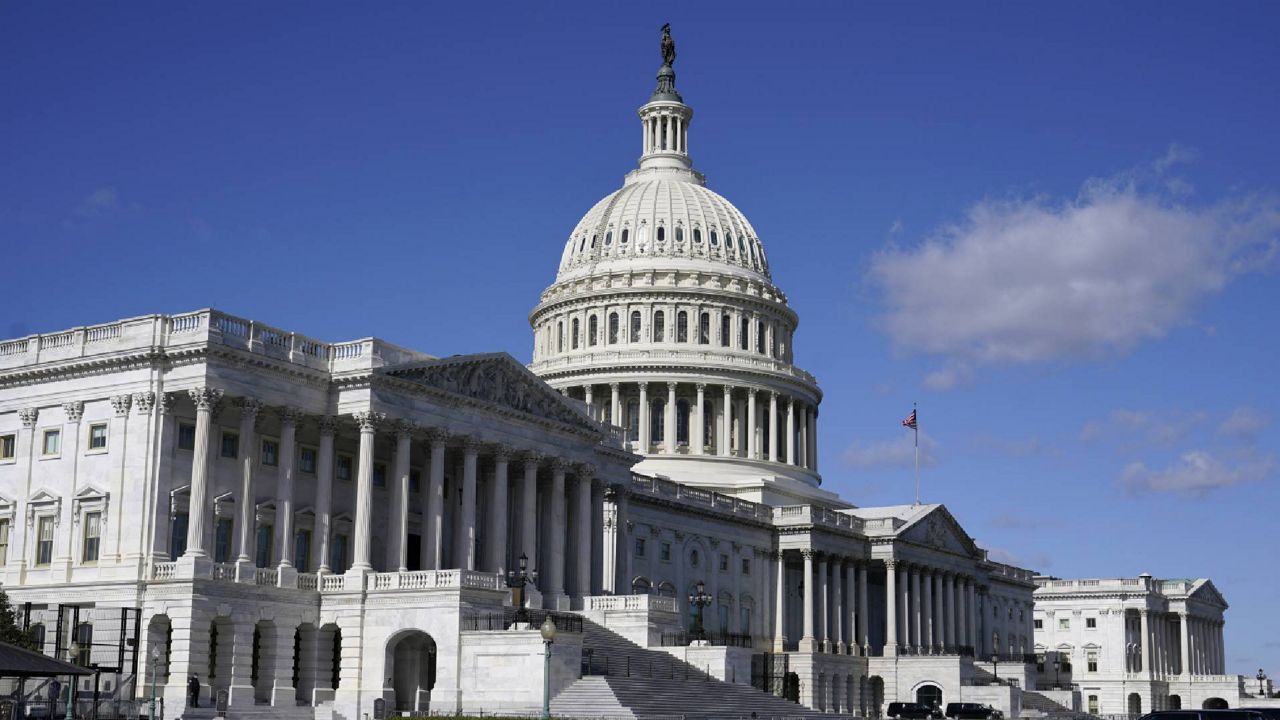Just before midnight on Monday, Congress overwhelmingly voted to pass a massive package to both fund the government through next year and provide billions of dollars in much-needed economic relief related to the coronavirus pandemic.
The measure passed in the Senate by a margin of 92-6, following a vote in the House of 359-53. The measure heads to President Donald Trump's desk to be signed.
"The American people can rest assured that more help is on the way, immediately," Majority Leader Mitch McConnell (R-KY) wrote in a Twitter post following the vote.
Notable Senators who voted against the bill include:
- Sen. Rand Paul (R-KY)
- Sen. Rick Scott (R-FL)
- Sen. Marsha Blackburn (R-TN)
- Sen. Ted Cruz (R-TX)
- Sen. Mike Lee (R-UT)
- Sen. Ron Johnson (R-WI)
Georgia's two Republican Senators, Kelly Loeffler and David Perdue, who were both campaigning in two key runoff races against Democratic opponents on Monday, returned to Washington, D.C., to vote in the affirmative on the measure.
Also present in the Capitol: The Vice President-elect, Sen. Kamala Harris (D-CA). She, too, voted to pass the bill.
The long-awaited bill — the text of which is more than 5,500 pages — faced a midnight deadline to pass, since a short-term funding resolution is set to expire Monday night, potentially prompting a government shutdown.
The bill includes appropriations to fund government agencies and functions through the end of fiscal year 2021 — a $1.4 trillion measure — along with a $900 billion relief package, which renews unemployment relief, small business aid and delivers direct $600 payments to Americans. It also includes funding for rental assistance, education, vaccine distribution and other hurting industries.
It also attaches additional bills to those major pieces of legislation, including a measure to ban many surprise medical bills.
“While there is much in this bill that I disagree with," Sen. Pat Toomey (R-PA) said, "including wasteful government spending and misguided policies that will dampen the recovery, the good it does outweighs the bad.”
The House adjourned until Thursday for a pro forma session, per according to House Majority Leader Steny Hoyer (D-MD); they may meet again next Monday for an override vote in the event that President Trump vetos the National Defense Authorization Act, which he has threatened to do. The defense spending bill passed both chambers of Congress last week by an overwhelming, veto-proof margin.
Democrats long fought for a much larger measure, and the House passed the $2.2 trillion HEROES Act in May. Republicans had pushed for a smaller, more-targeted bill, which also didn’t garner enough support.
On Monday, lawmakers on both sides acknowledged the coronavirus relief bill was long overdue, stalled for months due to partisan disagreement over its size and a handful of sticking points.
“This bill could have been done months ago,” said Rep. Tom Cole (R-OK), who blamed House Speaker Nancy Pelosi for the hold-up, calling House Democrats’ efforts to pass a larger bill “one-sided.”
During those months, unemployment remained high, with another 885,000 filing jobless claims in the second week of December and more than 20 million Americans collecting some form of unemployment benefits.
"I am deeply disappointed that Congress is so unforgivably late in completing our work. The fiscal year began on Oct.1, nearly three months ago,” said Senator Patrick Leahy (D-VT) on Monday. “There is absolutely no reason why this bill could not have been finished months ago."
Democrats have vowed to fight for additional aid in 2021, and President-elect Joe Biden has also expressed support for more relief.
The sweeping bill also contains $25 billion in rental assistance, $15 billion for theaters and other live venues, $82 billion for local schools, colleges and universities, and $10 billion for child care.
The appropriations bill was likely to provide a final$1.4 billion installment for Trump’s U.S.-Mexico border wall, a condition of winning his signature. The Pentagon would receive $696 billion. Democrats and Senate Republicans prevailed in a bid to use bookkeeping maneuvers to squeeze $12.5 billion more for domestic programs into the legislation.
The bill was an engine to carry much of Capitol Hill’s unfinished business, including an almost 400-page water resources bill that targets $10 billion for 46 Army Corps of Engineers flood control, environmental and coastal protection projects. Another addition would extend a batch of soon-to-expire tax breaks, such as one for craft brewers, wineries and distillers.
It also would carry numerous clean-energy provisions sought by Democrats with fossil fuel incentives favored by Republicans, $7 billion to increase access to broadband, $4 billion to help other nations vaccinate their people, $14 billion for cash-starved transit systems, $1 billion for Amtrak and $2 billion for airports and concessionaires.
The Associated Press contributed to this report.
Note: An earlier version of this story had an incorrect tally of the votes in the U.S. Senate. The vote was misread on the Senate floor Monday night due to the incorrect tally. It has since been corrected to 92-6.



